
COP26: too much talk, not enough action – including by Switzerland
It doesn’t matter whether it is well or badly said, the important thing is that it is said. The United Nations Climate Change Conference in Glasgow (COP26), which is now drawing to a close, has certainly been the talk of the town.
But the first draftExternal link of the final agreement published on Wednesday revealed small achievements and many – too many – uncertainties. Switzerland is meanwhile trying to pull its weight at the international summit, but should maybe do better at home first.
According to some, everything is at stake in Glasgow, according to others almost nothing. European Commission President Ursula Von der Leyen calls it “an opportunity to write history”, while climate activists speak of a “celebration of business-as-usual” and the “usual blah blah”. “Change is not going to come from in there, that’s not leadership,” Greta Thunberg said impetuously, before snubbing Barack Obama and returning to her classroom. “On climate progress, I’m cautiously optimistic,” replied British Prime Minister Boris Johnson timidly.
But even if opinions are polarised, the facts remain and the bite is bitter: despite the announcements, discussions and promises, the planet is heading for a global temperature increase of 2.4 degrees Celsius, well above the 1.5 degree threshold set by the Paris agreement, according to a recent independent reportExternal link. “It is clear that there is a huge gap in credibility, action and commitment,” the paper says of what is happening in Glasgow.
Meanwhile, negotiations continue at COP26. The first draft of the agreement published on Wednesday lays out for the first time the commitment of all participating states to renounce coal and fossil fuel subsidies, which have been seen as the key sticking points in negotiations. However, the document is still considered too vagueExternal link.
My colleague Luigi Jorio, who works on climate issues, takes this view of the summit:
Two images of the Glasgow conference perfectly sum up the way we are dealing with the climate crisis: the queue of thousands of participants that formed on the first day at the entrance to the convention centre and the bustle of the 400 or so private jets that brought heads of state, businessmen and celebrities to the Scottish city.
When it comes to limiting emissions and global warming, many people want to participate in international efforts. But when promises and big announcements have to be turned into action, old habits die hard: an ambivalent attitude that will get us nowhere.
Brave abroad, unambitious at home
Switzerland, for its part, is trying to influence the discussions positively, in the hope of drawing up strong and uniform rules to limit CO2 emissions.
But after the rejection of a new CO2 law at the ballot box in June, it is legitimate to ask what credibility Switzerland has to expect others to do more. Luigi asked himself this question and analysed Switzerland’s position at the summit, while also considering how the country is doing at home.

More
Can Switzerland credibly call for ‘ambitious strategies’ at COP26?
Although Switzerland supports an ambitious climate policy, its contribution to an emission-free planet is disappointing. This is why it has lost ground in a ranking of countries most committed to combating climate change.External link
The data on the rise in temperatures in the Alpine region speak for themselves. “Switzerland is particularly vulnerable to climate change. The average temperature has already risen by almost two degrees in the last 150 years, twice as fast as the global average. The most tangible effect of warming is the melting of the glaciers,” writes Luigi.
Climate warming is therefore happening faster in Switzerland. And although Switzerland’s latitude and remoteness from the ocean do not help to reverse this process, its efforts remain insufficient, according to Climate Analytics’ assessmentExternal link. If other countries were to follow the Swiss example, global temperatures would rise by 3-4 degrees by the end of the century, the organisation writes. Other (surprising) countries, such as Gambia, are considered to be much more virtuous. Read more in our article:

More
Switzerland’s ‘disappointing’ contribution to an emissions-free planet
What do you think of Switzerland’s position on climate issues? Write to me to discuss it.
If it’s hot, take off your jacket, right?
A part of public opinion, however, continues to deny the harmful effects of human activity on the climate. “Climate change has always existed, it is a natural phenomenon,” some comments on social media read. “The more virtuous must pay for the less virtuous, it’s not fair!” thunder others, referring to the biggest emitters of greenhouse gases, such as China, a big absentee in Glasgow. “It’s hot, so what? Take your jackets off,” someone commented with a smile.
Some of us might like to pin our hopes on the younger generation, the ones who take the world leaders by the collar. But not all young men and women are sensitive to the subject. At the table with my nephew, a sixteen-year-old boy who attends one of the best classical high schools in Milan, I found myself talking about strikes in schools.
“Yes, in my high school they’re on strike because of the weather and all that stuff. It’s just an excuse not to go to school,” he told me. “Yep, just a good group ditching!” the father added. I found myself thinking that sometimes, perhaps, those who don’t go to school understand the world better than those who do. And that being alternative parents can mean doing society a service. But I kept my mouth shut.
“Ignoring established scientific truths because of uncertainties about the latest findings is like thinking that, given doubts about quantum gravity, you can throw yourself off the seventh floor because you might as well fall upwards instead of downwards,” writes scientist Lawrence KraussExternal link, author of The physics of climate changeExternal link, to explain the recklessness of those who deny or downplay the situation.
More
Don’t mess with the climate
Not everyone has the luxury of doubting the seriousness of climate change. In the Swiss alpine resort of Kandersteg, residents have to live with the threat of a collapse of the nearby Spitzer Stein mountain.
“The climate crisis, which is the focus of negotiations at the current conference in Glasgow (COP26), is slowly transforming the Swiss Alps. Temperatures are rising, glaciers are retreating and melting permafrost is undermining the stability of mountain slopes,” writes my colleague Simon Bradley. He has been to Kandersteg and talked to someone who sees the mountains falling on him day after day, piece by piece. Here, gravity is like a sword of Damocles hanging over people’s heads.
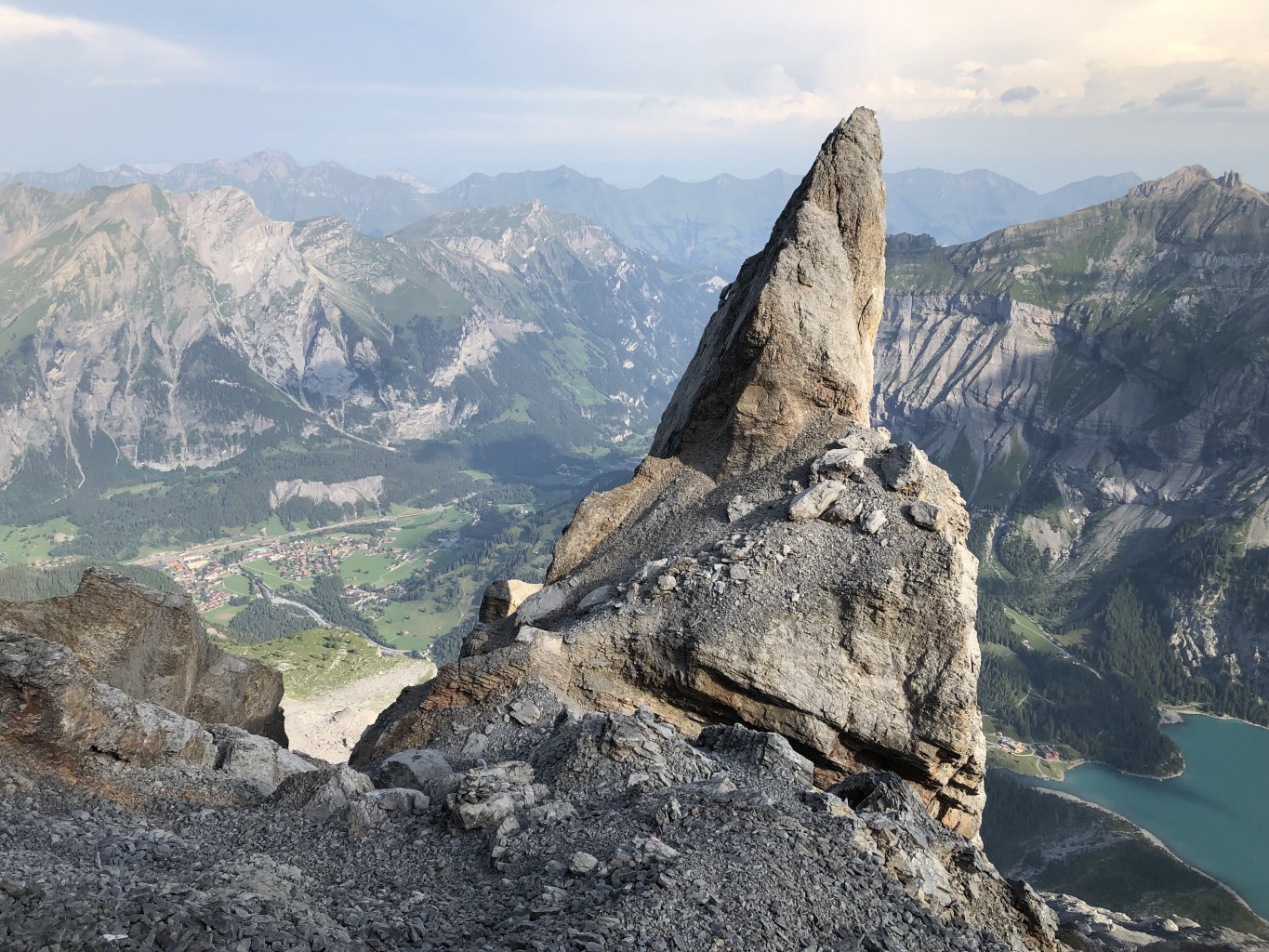
More
Climate threats: living in the shadow of a crumbling mountain
What can or should be done to combat climate change? Let us know your opinion.
How sustainable is technology?
Could technology help curb climate change? Some have believed in it and have focused, for example, on technologies for removing and sequestering CO2 from the air. However, some argueExternal link this solution is too expensive and concedes too much to oil and fossil fuel lobbies, providing no incentive to reduce greenhouse gas emissions.
But are we sure that the technology is always sustainable? I asked a group of experts with whom I spoke about the future of healthcare and rehabilitation at Swiss Robotics DayExternal link, the day dedicated to Swiss research and innovation in the field of robotics that took place on November 2.
The automation sector promises increasingly sustainable solutions in terms of materials used for production and energy savings. If we think that robots have an average lifespan of more than ten years and that one day we might be able to use them to treat ourselves at home, saving on travel to hospitals, the future looks promising.
But if we all have a robot in our homes, how will we avoid creating even more waste? That’s why science is focusing on recyclable materials and microbiological fuel cellsExternal link.
Want to discover some of the best robotics solutions presented at Swiss Robotics Day? Don’t miss our video compilation!

More
Robotic innovations that will change our lives
Do you have comments, remarks or questions about the latest news from the world of science? Let’s talk about it over a (virtual) coffee.
Don’t miss our latest stories on climate and the world of science and technology in Switzerland:
How climate change is changing Switzerland’s landscape, economy and people. Two-part video:
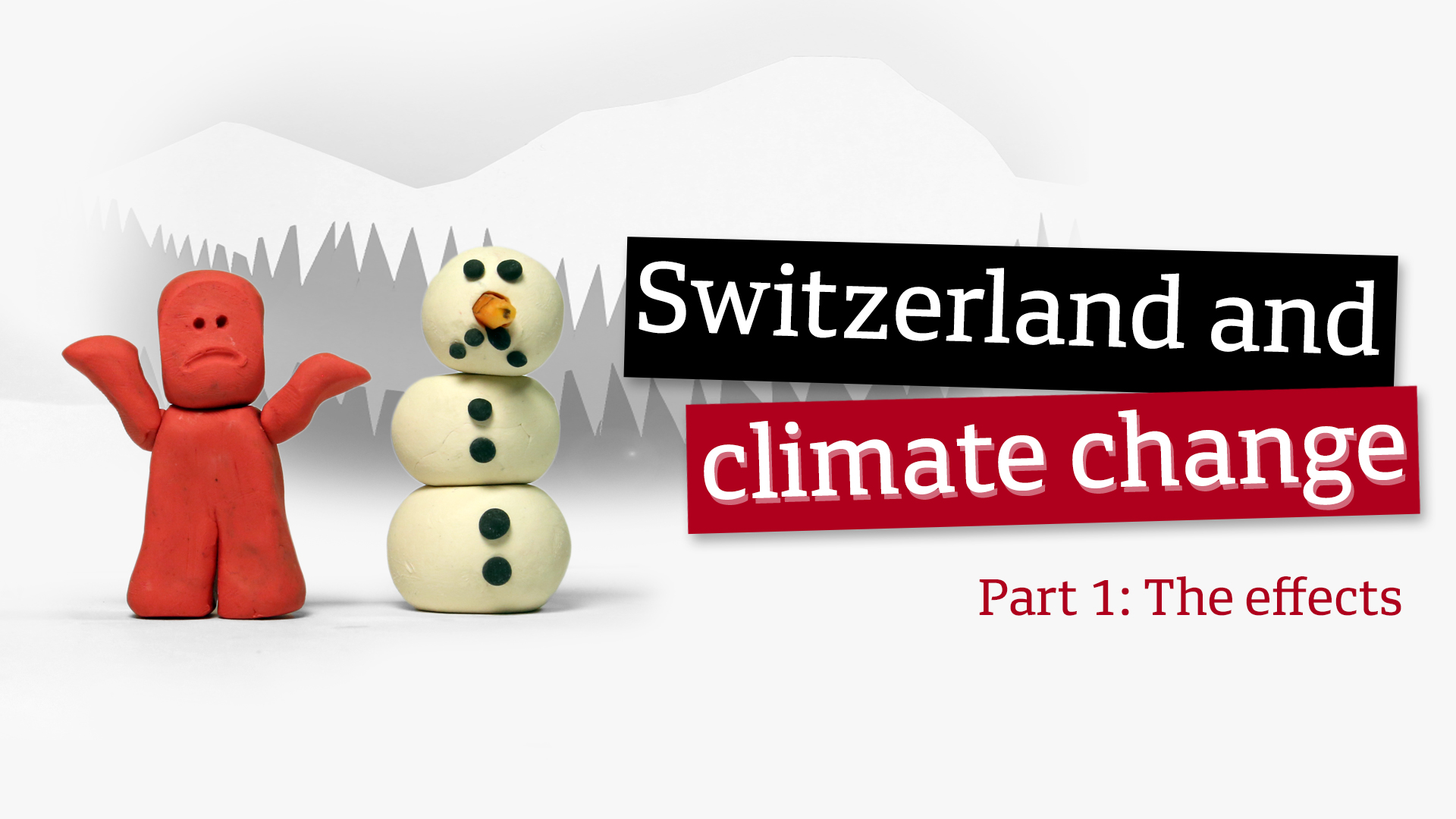
More
The reality of climate change in Switzerland
SWI swissinfo.ch is on the ground at the climate conference in Glasgow. Here’s what’s happening.

More
COP26 blog: Live from Glasgow
A Swiss project in Peru proposes a solution to offset CO2 emissions:
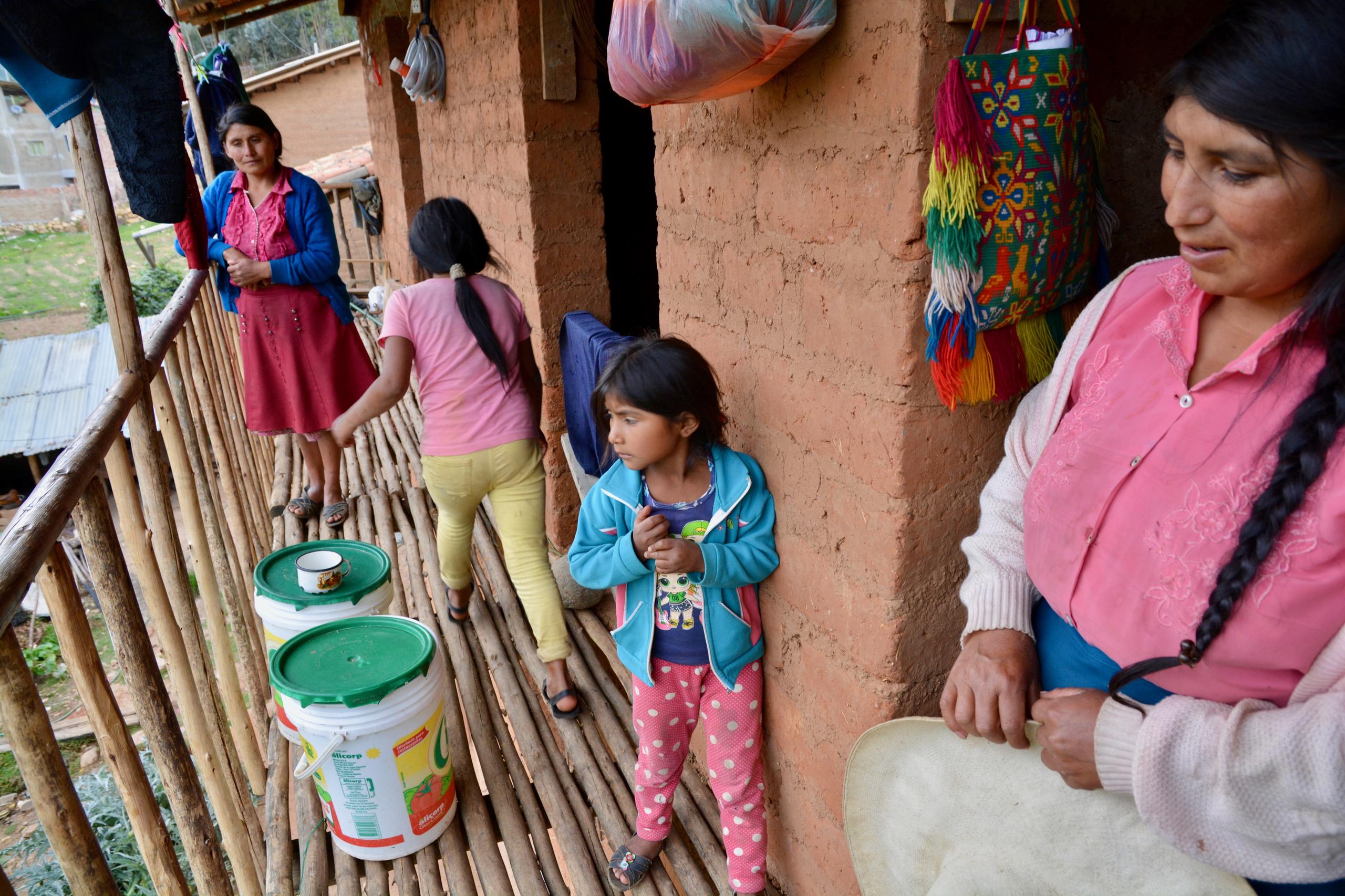
More
Swiss carbon offsetting project adds spark to global debate on credits
COP26 President Alok Sharma is also counting on Switzerland to find solutions to global warming:
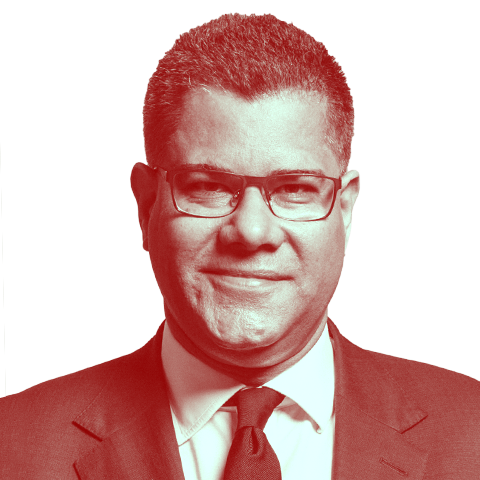
More
‘We are counting on countries like Switzerland’
CO2 offsetting is one of the most controversial issues at COP26. How does it work?
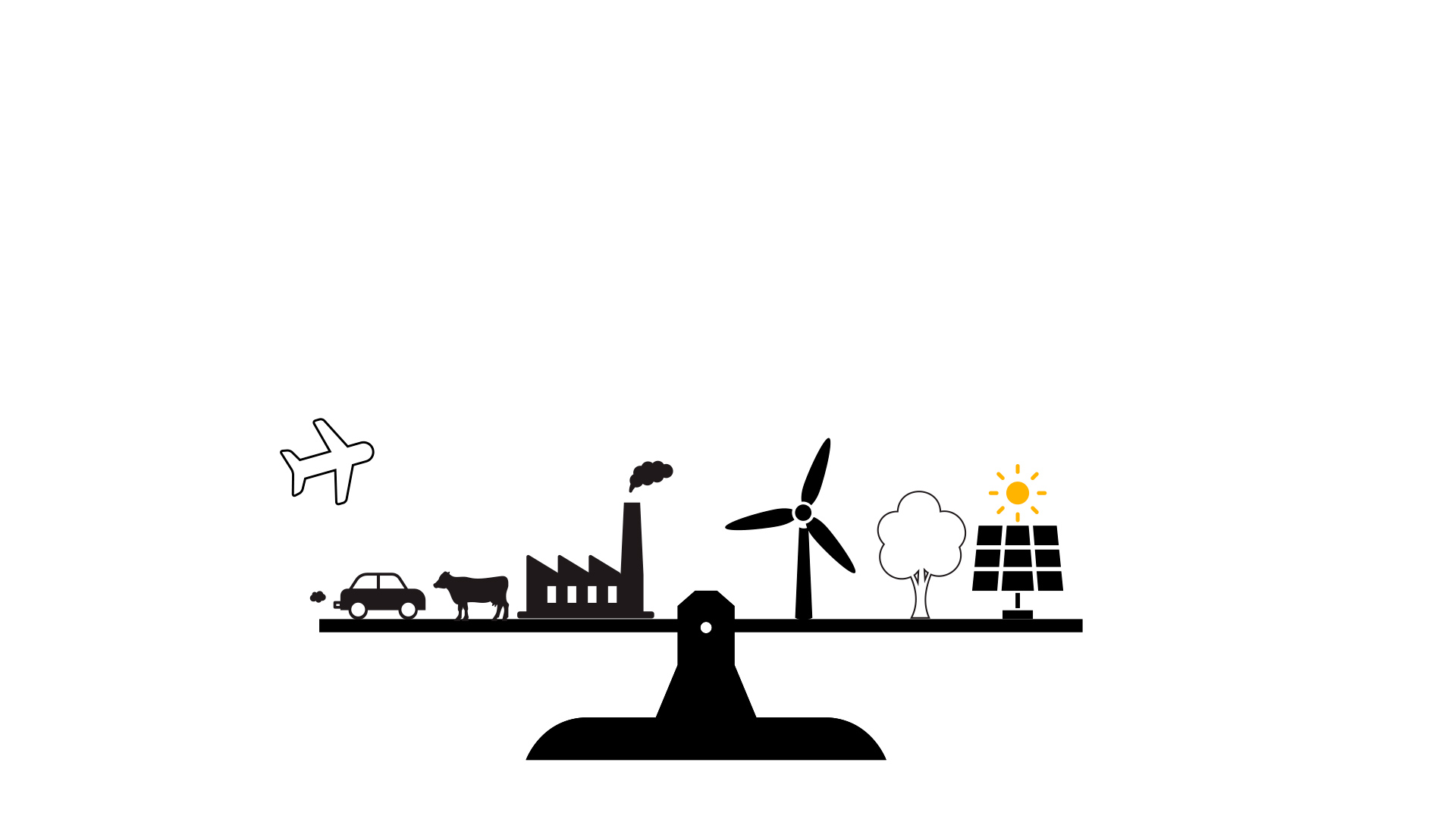
More
What Is Carbon Offsetting? Explained in 2 Minutes
COP26: Switzerland can play a leading role in international negotiations. But it needs to be more ambitious:
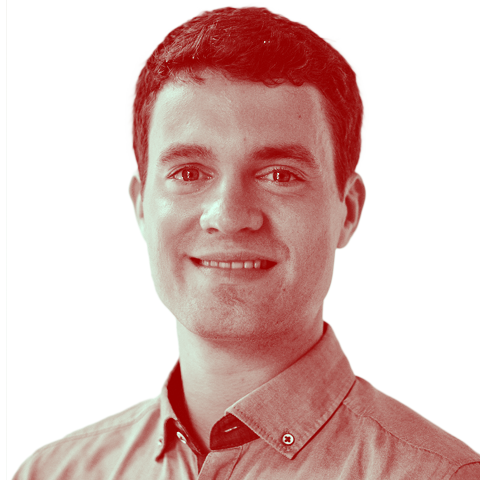
More
COP26: rich Switzerland must take on more responsibility
Margarita Chli is one of the few successful women in robotics. She hopes her story will help break down gender stereotypes in science:
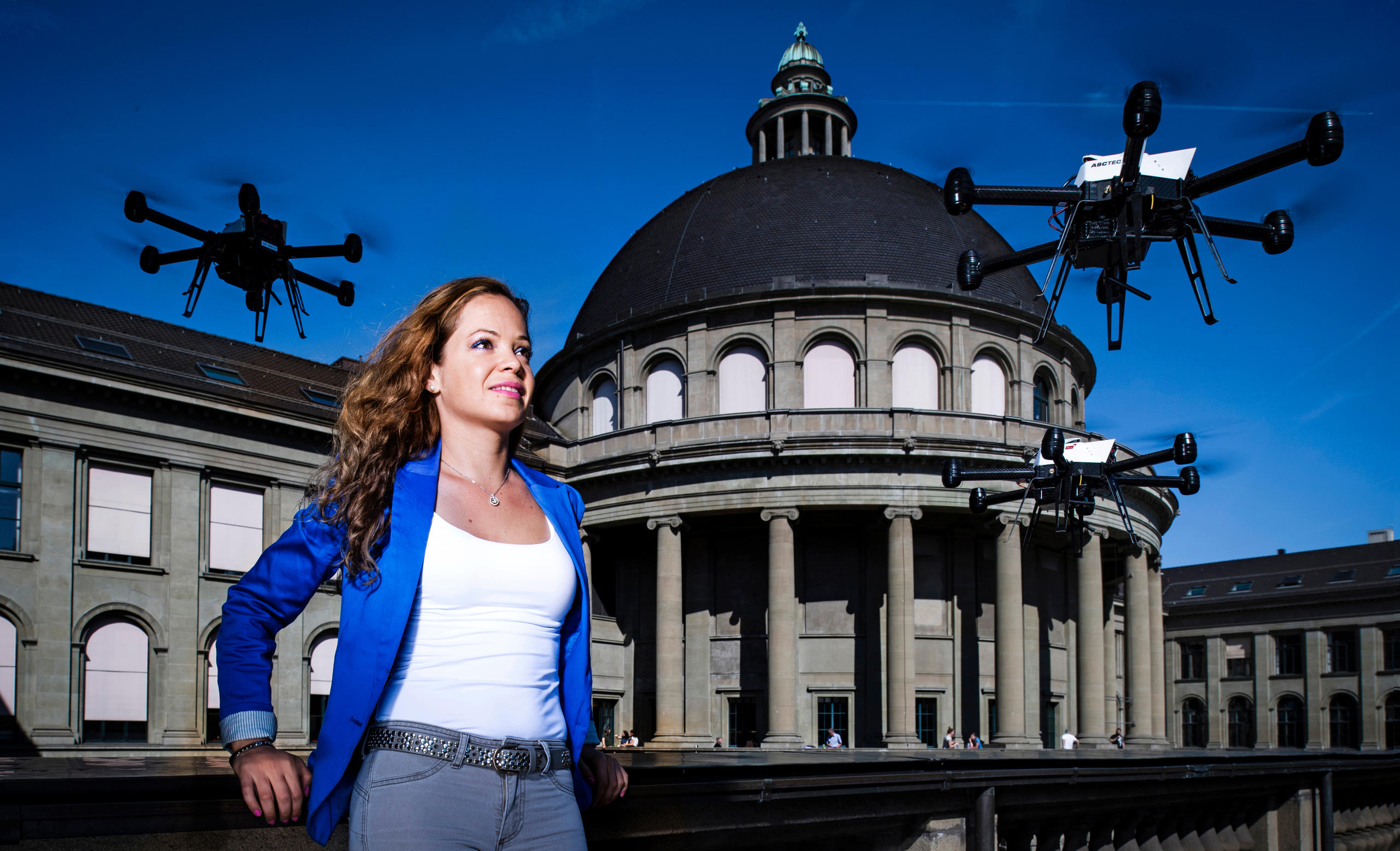
More
‘I try to show the other side of robotics, the good side’
Swiss Nobel laureate Didier Queloz and astrophysicist Sascha Quanz will study the origins of life at a new research institute in Zurich:
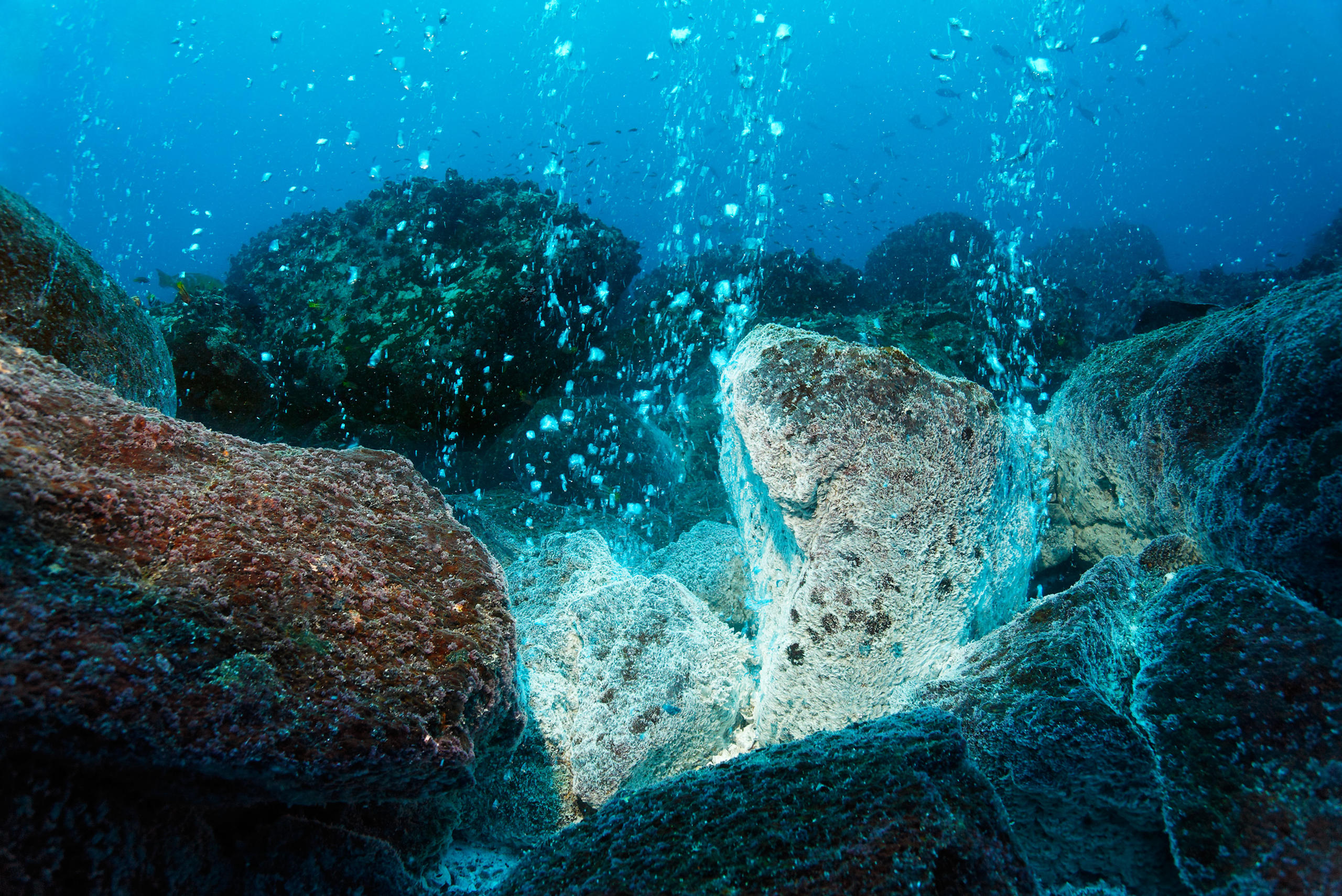
More
‘There is life elsewhere in the universe’

In compliance with the JTI standards
More: SWI swissinfo.ch certified by the Journalism Trust Initiative
































You can find an overview of ongoing debates with our journalists here . Please join us!
If you want to start a conversation about a topic raised in this article or want to report factual errors, email us at english@swissinfo.ch.